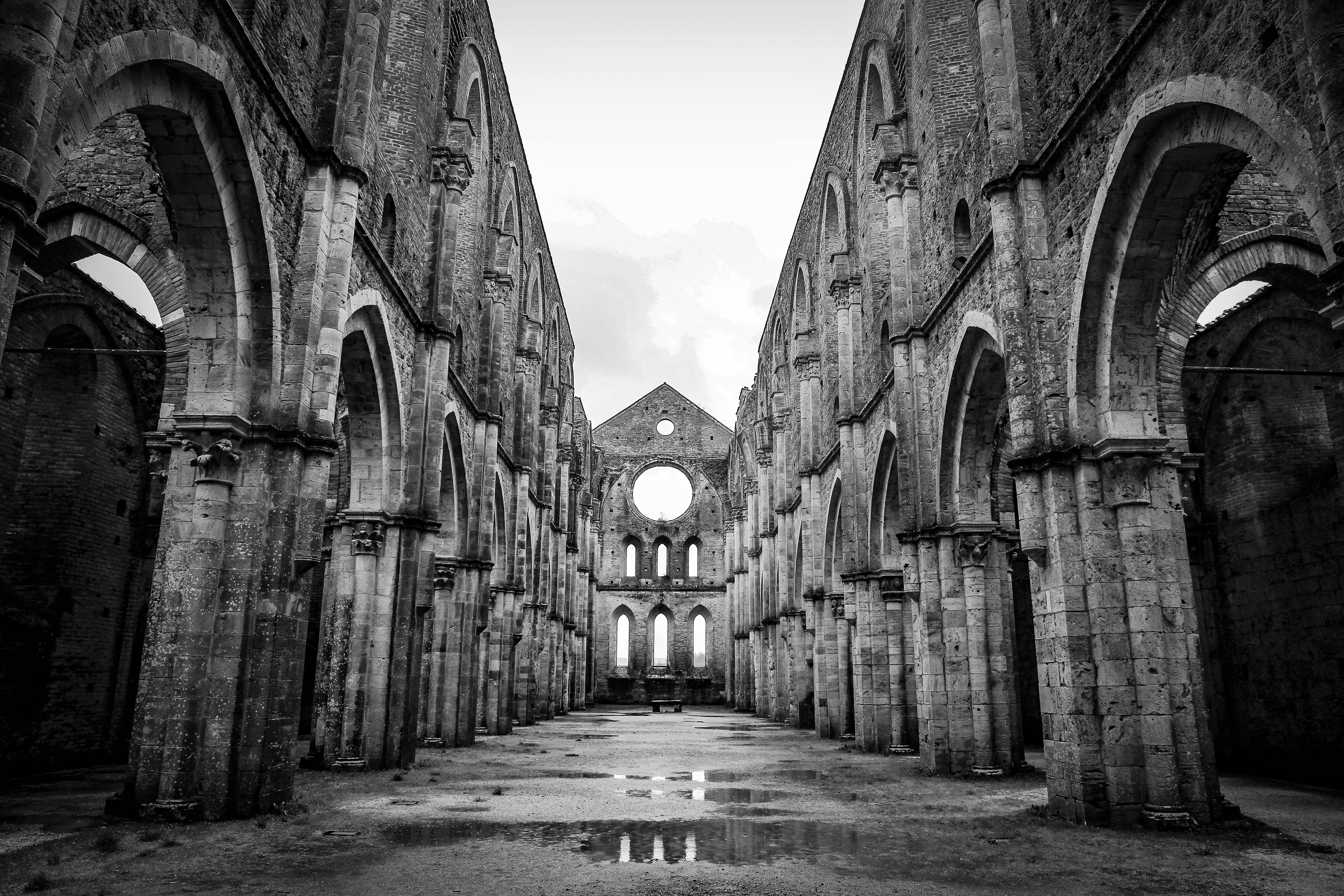In Ghana, it seems that most people aspire to own their own house and many start by buying land and undertaking what they call a construction project. The actual construction takes place in stages as funds come in, and a project can last for many years. Some structures are occupied at an intermediate stage and are never completed afterwards, while others do not reach a stage where they can be occupied during the lifetime of the initial owner. Other houses financed by people sending funds from abroad make rapid progress and are finished to a high standard. What follows describes a visit to a construction site in Kumasi in the mid-1980s.
In a wide area, houses in all stages of construction could be seen, scattered in random distribution on plots of about half a hectare. One or two seemed to be busy because lights could be seen turning on in the gathering darkness. Some structures had walls up to ceiling height but no roofs, while others had roofs but no doors or windows. Many consisted solely of open trenches dug to accommodate foundations, and some had been exposed to wind and rain for so long that the trenches had been partially filled. Other potential residences were little more than thick concrete slabs. Others remained like piles of cement blocks that stood as silent sentinels of their owners’ intent.
Uncle George led the way to a large structure consisting of walls topped by a freshly cast round beam, with the wooden formwork still in place. “Here we are,” he said, “this is Peter’s cabin.”
“Some cabin!” Kwame said, “It’s almost as big as your own house.”
“I think the plan is to make it even bigger at a later stage,” said Uncle George, “he keeps saying this is just the first phase of the project.”
“Well, it certainly has a lot of ground to expand on,” Kwame observed.
“Is Peter’s house the biggest around here?” Comfort asked.
“No, it’s the second largest,” said Uncle George.
“Is that the biggest one over there?” Comfort insisted, “Who is that for?”
“Yeah, that’s the big one,” Uncle George said, “Peter says it’s for one of his friends named Bra Yaw.”
“Bra Yaw?” Kwame said, “I thought he was being detained for the pleasure of Her Britannic Majesty.”
“He had some problems with UK customs but I hear he’s back now. There was no break in construction work while he was away anyway.”
“It’s more than can be said about most of these construction projects,” Kwame said, “they seem to have been neglected for months or even years.”
“You know how our people are,” said Uncle George, “we buy a piece of land, put some cement blocks on it, and enjoy the prestige of having a house under construction for the rest of our days.”
“That’s been pretty hard on us,” Comfort protested, “People have to start somewhere and invest in the project as the funds come in. Sometimes there can be a long time when no money comes in. That’s when nothing can be done for several months. However, by the grace of God, the house will be finished one day.”
“That day might come much sooner if we could be satisfied with smaller houses,” said Uncle George. “With our grandiose aspirations, many of us occupy a wooden box before living in our own house.”
“I understand what you’re saying,” Kwame said, “but does that apply to houses financed from abroad?”
“The runaways certainly seem to have a lot more money,” Uncle George said, “but much of it is wasted by their relatives here. I think everyone could benefit from investing in more modest projects. After all, a small house can be designed to expand.” later if more funds are available, as easily as Peter’s big house.”
Night had fallen while they were talking, so Uncle George took them back to his house. The conversation continued as they walked. Are all the plots here occupied? Comfort asked. “Everyone took over long ago,” said Uncle George, “land in good residential areas isn’t much on offer these days with all the foreign money coming in. Chiefs can and sometimes do sell their land several times over.” . That is the cause of so much litigation. I told Peter that he should study law. The more problems there are, the more money lawyers make.”
“But Peter is reading economics,” Kwame interjected.
“Yes,” said Uncle George, “I told you this morning that he doesn’t notice old fools like me.”
“But shouldn’t you show your sponsor more respect?” Kwame asked.
“There was a time when he did, but now that he’s got his own money he’s done pretending,” Uncle George said with a wry smile.



